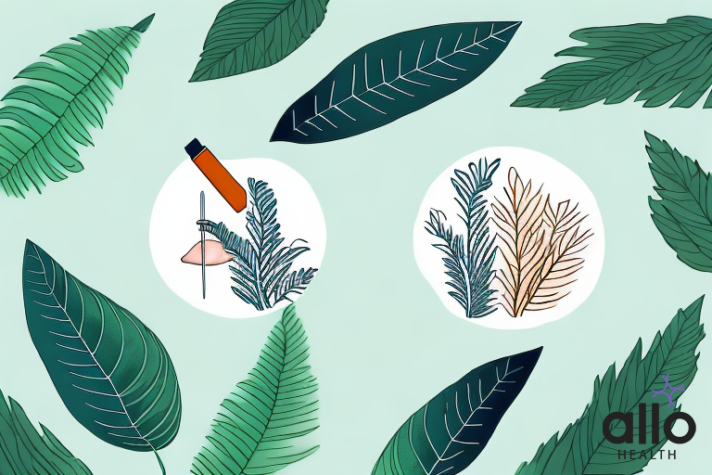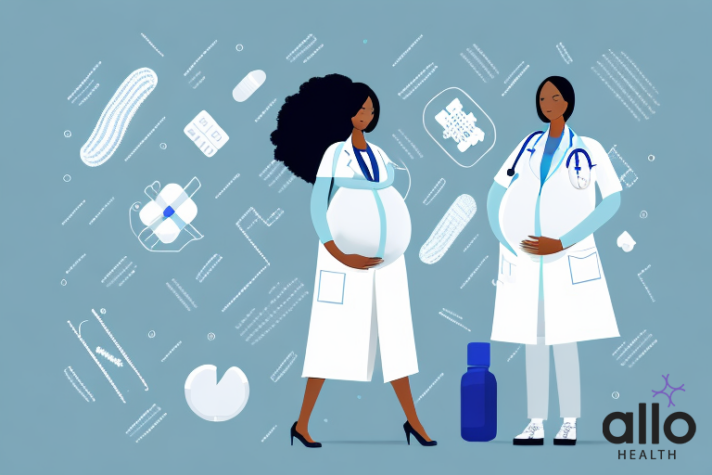How to Treat HPV Itching: Tips for Relief

Allo Health is dedicated to personalized well-being, offering support and trusted information tailored to individual health goals. The platform emphasizes human-generated content, led by a distinguished medical team of experts, including physicians and sexual health specialists. Their commitment to credibility involves rigorous fact-checking, authoritative research, and continuous updates to ensure accurate, up-to-date information. Allo Health's unique approach goes beyond conventional platforms, providing expert-led insights and a continuous commitment to excellence, with user feedback playing a crucial role in shaping the platform's authoritative voice.

Dr Sanina Mansoor holds MBBS degree from Yenepoya university,Mangalore.She has 8 years of experience working as a medical officer at various health centres and medical colleges.
Why This Was Upated?
Our experts continually monitor the health and wellness space, and we update our articles when new information became available.
Updated on 17 June, 2024
- Article was updated as part of our commitment to diversity, equity, and inclusion.

"The following blog article provides general information and insights on various topics. However, it is important to note that the information presented is not intended as professional advice in any specific field or area. The content of this blog is for general educational and informational purposes only.
Book consultation
The content should not be interpreted as endorsement, recommendation, or guarantee of any product, service, or information mentioned. Readers are solely responsible for the decisions and actions they take based on the information provided in this blog. It is essential to exercise individual judgment, critical thinking, and personal responsibility when applying or implementing any information or suggestions discussed in the blog."
Human Papillomavirus (HPV) is a common sexually transmitted infection (STI) that can cause itching, pain, and discomfort. Although HPV cannot be cured, there are several ways to manage its symptoms, including itching. In this comprehensive guide, we will take a closer look at the causes, symptoms, and treatment options for HPV itching, including lifestyle changes, over-the-counter treatments, prescription medications, and natural remedies. We will also discuss the importance of seeking medical attention for HPV and preventing future outbreaks.
HPV Overview
Human Papillomavirus (HPV) is a group of related viruses that can infect different parts of the body. It is the most common sexually transmitted infection (STI) worldwide. HPV is named for the warts (papillomas) some types of HPV can cause. It is important to note that not all HPV infections lead to visible warts or other symptoms, and many infections resolve on their own without causing any health problems.
Here’s a detailed overview of HPV:
Types of HPV:
- Low-risk HPV: These types can cause warts on or around the genitals, but they are not associated with cancer. Examples include HPV 6 and 11.
- High-risk HPV: These types can lead to cancer, including cervical, anal, penile, vaginal, and oropharyngeal cancers. Examples include HPV 16 and 18.
Transmission:
- Sexual Contact: HPV is primarily transmitted through intimate skin-to-skin contact, including vaginal, anal, and oral sex.
- Vertical Transmission: It can be passed from a pregnant person to their baby during childbirth.
Prevalence:
- Common Infection: HPV is so common that nearly all sexually active people will get at least one type of HPV at some point in their lives.
- Most Clear on Their Own: In many cases, the immune system clears the virus without any intervention.
Clinical Manifestations:
- Genital Warts: Caused by certain low-risk HPV types. These warts may appear on the genital or anal areas.
- Cancer: High-risk HPV types are associated with various cancers, especially cervical cancer.
HPV and Cancer:
- Cervical Cancer: Persistent infection with high-risk HPV types is a major risk factor for cervical cancer. Regular Pap smears or HPV testing can help detect cervical changes early.
- Other Cancers: HPV is also linked to anal, penile, vaginal, vulvar, and oropharyngeal cancers.
Prevention:
- Vaccination: HPV vaccines, such as Gardasil 9 and Cervarix, can protect against the most common types of high-risk and low-risk HPV.
- Safe Sex Practices: Using condoms consistently and correctly can reduce the risk of HPV transmission.
- Regular Screening: Pap smears and HPV testing are essential for detecting cervical abnormalities early.
HPV in Men:
- Cancer Risk: While men can develop cancers related to HPV, including penile and anal cancers, they are not routinely screened as women are for cervical cancer.
- Vaccination: HPV vaccination is recommended for boys and young men to reduce the risk of associated cancers.
HPV in Women:
- Cervical Cancer Screening: Regular Pap smears and/or HPV testing are crucial for early detection of cervical abnormalities.
Vaccination Recommendations:
- The HPV vaccine is recommended for both males and females, ideally before sexual activity begins.
Treatment:
- No Cure: There is no cure for HPV, but many infections resolve on their own.
- Management of Symptoms: Treatment focuses on managing symptoms, such as warts or abnormal cell changes.
It’s important for individuals to talk to their healthcare providers about HPV vaccination and screening options. Early detection and prevention are key in reducing the impact of HPV-related diseases.

How to Treat HPV Itching: Tips for Relief
While there is no specific cure for Human Papillomavirus (HPV) itself, symptoms such as itching can be managed. It’s important to note that not everyone with HPV will experience symptoms, and in many cases, the virus clears on its own without causing any discomfort. If you are experiencing persistent itching or other symptoms, it’s crucial to consult with a healthcare professional for proper evaluation and guidance. Here are some general tips for relieving HPV-related itching:
Consult a Healthcare Professional:
- Before attempting any self-treatment, consult with your healthcare provider to confirm the diagnosis and discuss appropriate management options.
Maintain Good Hygiene:
- Keep the affected area clean and dry.
- Use mild, fragrance-free soaps to avoid irritation.
Avoid Scratching:
- Scratching can worsen irritation and potentially lead to open sores or infection.
- Keep nails short to minimize the risk of scratching.
Cool Compresses:
- Apply cool compresses to the affected area to help soothe itching.
- Avoid using ice directly on the skin; instead, use a cloth or towel.
Topical Creams:
- Your healthcare provider may recommend or prescribe topical creams or ointments to alleviate itching.
- Over-the-counter hydrocortisone creams may be used, but only as directed by your healthcare provider.
Antihistamines:
- Oral antihistamines, such as cetirizine or loratadine, may help reduce itching.
- Follow your healthcare provider’s recommendations for dosage.
Avoid Irritants:
- Avoid using perfumed products or harsh chemicals in the genital area.
- Choose underwear made of breathable fabrics, such as cotton.
Warm Baths:
- Soaking in a warm bath with colloidal oatmeal or baking soda may provide relief.
- Avoid hot water, as it can exacerbate irritation.
Prescription Medications:
- In some cases, healthcare providers may prescribe medications to address specific symptoms or complications.
Follow Treatment Plans:
- If you have genital warts (a symptom of certain types of HPV), follow your healthcare provider’s recommended treatment plan for wart removal.
HPV Vaccination:
- If you haven’t been vaccinated against HPV, discuss vaccination with your healthcare provider, as it can prevent certain types of the virus.
Practice Safe Sex:
- If you are sexually active, using barrier methods like condoms can reduce the risk of HPV transmission.
Regular Check-ups:
- Keep up with regular check-ups and screenings, especially if you have a history of HPV-related concerns.
Emotional Support:
- Dealing with an HPV diagnosis and its symptoms can be emotionally challenging. Seek support from friends, family, or a healthcare professional.
Remember that individual experiences with HPV can vary, and what works for one person may not work for another. Always follow the guidance of your healthcare provider, and do not hesitate to reach out if you have concerns or questions about your symptoms. Additionally, practice preventive measures, such as vaccination and safe sex, to reduce the risk of HPV-related complications.
Preventing HPV
Human Papillomavirus (HPV) is a common sexually transmitted infection, and while not all HPV infections lead to complications, some can cause serious health concerns, including various cancers. Prevention strategies are essential in reducing the risk of HPV transmission. Here’s a detailed overview:
HPV Vaccination:
- For Both Genders: Vaccination is recommended for both males and females.
- Routine Vaccination: HPV vaccination is most effective when administered before any sexual activity begins. Ideally, it is recommended for preteens and teenagers.
- Available Vaccines: Gardasil 9 is a widely used vaccine that protects against the most common high-risk and low-risk HPV types.
Safe Sex (Intercourse) Practices:
- Consistent Condom Use: While not foolproof, using condoms correctly and consistently can reduce the risk of HPV transmission.
- Barriers for Oral Sex: Dental dams or other barriers can be used during oral sex to reduce the risk of oral HPV transmission.
Limiting Sexual Partners:
- Fewer Partners: Limiting the number of sexual partners can reduce the risk of exposure to HPV and other sexually transmitted infections.
- Mutual Monogamy: Engaging in a monogamous relationship where both partners are uninfected can lower the risk.
HPV Testing and Screening:
- Regular Check-ups: Women should undergo regular cervical cancer screenings, including Pap smears and HPV tests, as recommended by their healthcare provider.
- Early Detection: Regular screening helps detect abnormal changes in cells early, allowing for timely intervention.
Education and Awareness:
- Know Your Risk: Understanding how HPV is transmitted and its potential consequences is crucial.
- Communication: Open communication with sexual partners about sexual health, history, and vaccination status is important.
Promoting Vaccination in Schools:
- School Programs: Many countries have implemented school-based HPV vaccination programs to reach adolescents before they become sexually active.
- Community Outreach: Raising awareness about the benefits of vaccination through community programs and healthcare initiatives.
Public Health Campaigns:
- Information Dissemination: Governmental and non-governmental organizations conduct campaigns to educate the public about HPV, its risks, and preventive measures.
- Vaccine Promotion: Encouraging vaccination through public health campaigns contributes to higher vaccine coverage rates.
Healthcare Provider Guidance:
- Professional Recommendations: Following healthcare provider recommendations for vaccination and screenings is crucial for individual and public health.
- Discussion and Counseling: Healthcare providers play a vital role in discussing HPV prevention strategies, vaccination benefits, and addressing patient concerns.
Research and Development:
- Ongoing Research: Continued research aims to improve existing vaccines, develop new ones, and enhance prevention strategies.
- Global Collaboration: International efforts contribute to a better understanding of HPV and the development of effective prevention measures.
Community Support:
- Support Groups: Communities can establish support groups for individuals affected by HPV, creating a platform for sharing information and experiences.
- Destigmatization: Reducing the stigma surrounding HPV encourages open discussions and proactive preventive measures.
Preventing HPV involves a multi-faceted approach, including vaccination, safe sex practices, regular screenings, education, and community engagement. By combining these strategies, individuals and communities can work towards reducing the prevalence of HPV and its associated health risks.
Most Asked Questions
-
Is itching a commonplace symptom of HPV?
Yes, itching may be a symptom of HPV, especially when the virus causes genital warts. The itching may range in intensity, and handling it includes addressing the underlying cause. Consult your healthcare issuer for an correct diagnosis and appropriate treatment.
-
Can I use over-the-counter lotions for HPV-related itching?
Over-the-counter hydrocortisone lotions may also help relieve itching related to HPV. However, it's critical to seek advice from your healthcare company earlier than the use of any medicinal drug to ensure it is appropriate in your particular situation.
-
Is scratching harmful if I have HPV-related itching?
Scratching can worsen infection and doubtlessly result in headaches. It's vital to avoid scratching the affected place to save you open sores or contamination. Keep your nails short to reduce the hazard of inadvertent scratching and are trying to find steerage out of your healthcare company for effective control.
-
Can HPV vaccination assist with itching symptoms?
HPV vaccination generally targets to save you HPV infection and related complications, which includes genital warts. While it may not at once cope with current symptoms like itching, vaccination can defend towards future HPV-associated troubles. Consult along with your healthcare issuer to talk about vaccination options and its ability benefits on your average fitness.






































